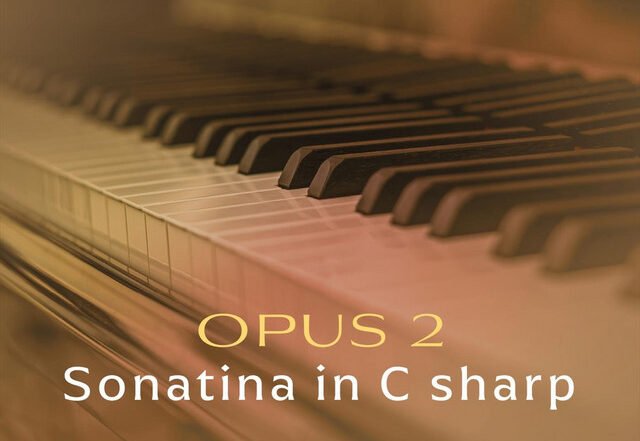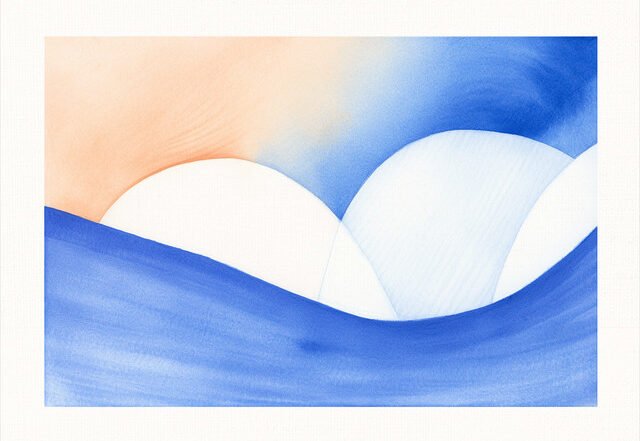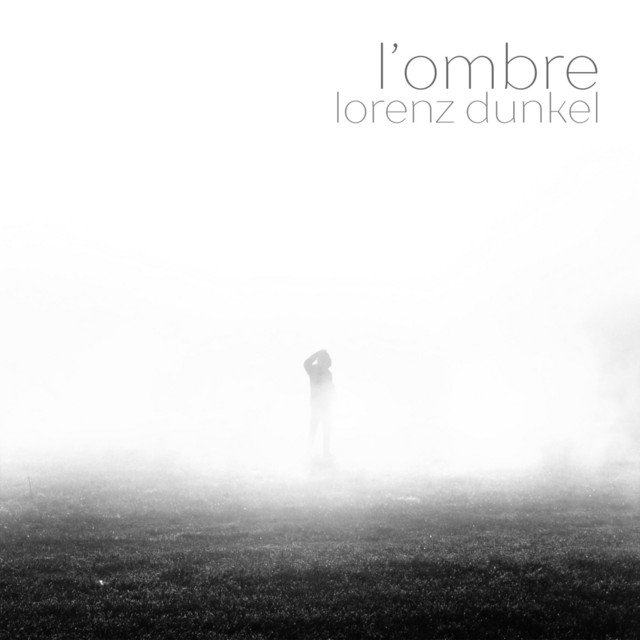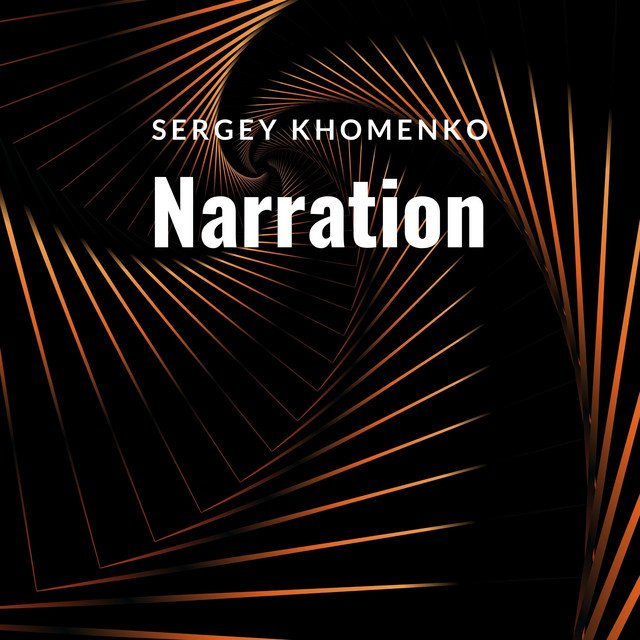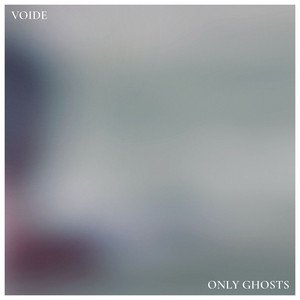Neoclassical Music ⁞ New Releases⁞ Artist Interviews⁞ Music News
Introduction of Neoclassical Music
Neoclassical music is a style of classical music that is characterized by its use of traditional forms and styles, as well as a focus on structure and balance. It is often seen as a reaction against the romantic style of music, which was characterized by emotion and passion, and was influenced by the ideas of the Enlightenment, which valued reason and classical learning.
Some of the key features of neoclassical music include the use of traditional forms such as sonata form, the use of clear and concise melodies, and the incorporation of elements of folk music and popular music. Neoclassical music also often featured a return to tonality, which is the use of a specific key or tonal center in a piece of music.
The neoclassical style has had a lasting influence on classical music, and it continues to be an important part of the classical repertoire
Favorite Neoclassical Music on Spotify
Favorite Neoclassical Videos on Youtube
Neoclassical Features
Raynald Grenier – Sonatina in C sharp | Neoclassical music review
“Η γλυκιά και παιχνιδιάρικη μελωδία μας φέρνει απρόσμενη χαρά και ευτυχία και καθώς εναλλάσσεται μας κάνει να νιώθουμε την αγωνία πως όλα αυτά θα χαθούν .Η χαρά και η θλίψη έχουν πιαστεί σε έναν ατελείωτο χορό και σε μια μάχη για την επικράτηση της η καθεμία. Ο ρυθμός με την ηρεμία του μας κάνει να ονειρευόμαστε και να ελπίζουμε.”
-Nagamag.com
Expand to read review translations *
“The sweet and playful melody brings us unexpected joy and happiness and as it alternates it makes us feel anxious that all this will be lost. Joy and sadness have been caught in an endless dance and in a battle for its dominance. The pace with its tranquility makes us dream and hope.”
-Nagamag.com
“La dulce y juguetona melodía nos trae alegría y felicidad inesperadas y, como se alterne, nos hace sentir ansiosos que todo esto se pierda. La alegría y la tristeza han sido atrapadas en un baile interminable y en una batalla por su dominio. El ritmo con su tranquilidad nos hace soñar y esperar.”
-Nagamag.com
The original review of “Raynald Grenier – Sonatina in C sharp” is written in the native language that is spoken by the dedicated, for this song, Nagamag’s Neoclassical reviewer and followed by two translations*, of which the one depends from the country of origin of the artist “Raynald Grenier” (Canada) and the other one is translated to a different language than original review and the country of origin of the artist.
* Automatically Translated
Nagamag unveils the mesmerizing composition “Sonatina in C sharp”, an extraordinary creation of harmony and creativity that “Raynald Grenier” offered to all of us. A Neoclassical song, which evoked an emotional voyage to our curator that desired to write down a unique review for “Raynald Grenier – Sonatina in C sharp”. What also sets this song among the featured choices of Nagamag is the way that “Sonatina in C sharp” is enriched with Piano characteristics. “Raynald Grenier – Sonatina in C sharp” is a rich music creation that deserves to be listened to again and again. Nagamag is honored to share this detailed music review by one of our experienced reviewers for Neoclassical music compositions. As always, Nagamag keeps up evaluating Neoclassical songs from across the globe, ensuring that all Neoclassical enthusiasts around the world have access to these auditory treasures .
Additional information/sources for Raynald Grenier – Sonatina in C sharp
A creative artist and composer, Raynald Grenier’s musical career began in the 1980s as an accompanying pianist, as well as a conductor for various musical and vocal groups. After spending years mesmerizing audiences with his countless stage performances in the United States, Canada, and Europe, Raynald decided to part ways with the stage and turned his mind towards specializing in musical creation and composition.
Neoclassical home page where “Raynald Grenier – Sonatina in C sharp” is hosted on Nagamag Music Magazine
Nagamag takes pride in supporting Neoclassical artists like “Raynald Grenier”, providing music reviews and music discoveries like “Sonatina in C sharp”.
This music post about song “Sonatina in C sharp” by “Raynald Grenier” is hosted in Neoclassical page on Nagamag.
There you can find similar Neoclassical artists to “Raynald Grenier” and more Neoclassical, Piano songs like “Sonatina in C sharp” that have been carefully selected by Nagamag’s Neoclassical experienced curators and reviewed by Nagamag’s Neoclassical dedicated reviewers.
Learn everything about Neoclassical on Wikipedia
If you enjoyed “Raynald Grenier – Sonatina in C sharp” but you have never listened before to any other Neoclassical song or you are interested in learning more about Neoclassical music gerne then click here to visit Neoclassical music page on Wikipedia.
Neoclassical music refers to a distinct style with common characteristics. Each genre carries its unique sound, instruments, and cultural influences. For a deeper understanding of Neoclassical music, Wikipedia provides comprehensive insights into its history, notable artists, and iconic works. Delve into the diverse and dynamic world of Neoclassical music through this valuable resource, broadening your knowledge around Neoclassical genre.
Yosef Gutman – The World And Its People | Neoclassical music review
“Οι σκέψεις γυροφέρνουν στο μυαλό και άλλοτε ηρεμούν και άλλοτε φουντώνουν σαν την οργισμένη θάλασσα. Η γλυκιά και ήρεμη μελωδία φέρνει την ισορροπία και βάζει τα πάντα σε σειρά. Το απαλό άγγιγμα της ρίχνει τους τόνους και επαναφέρει την ευχάριστη διάθεση μέσα μας. Ο χαλαρός ρυθμός ζωγραφίζει με ζωηρά χρώματα την μέρα μας και την ομορφαίνει.”
-Nagamag.com
Expand to read review translations *
“Thoughts go to the mind and sometimes calm down and sometimes flare like the angry sea. The sweet and calm melody brings the balance and puts everything in order. Her gentle touch throws her tones and restores the pleasant mood inside us. The relaxed rhythm paints with vibrant colors in our day and beautifies it.”
-Nagamag.com
“מחשבות הולכות לתודעה ולפעמים נרגעות ולפעמים מתלקחות כמו הים הזועם. המנגינה המתוקה והרגועה מביאה את האיזון ומסיימת את הכל. המגע העדין שלה זורק את הגוונים שלה ומחזיר את מצב הרוח הנעים בתוכנו. הקצב הנינוח מצייר צבעים תוססים בימינו ומייפה אותו.”
-Nagamag.com
The original review of “Yosef Gutman – The World And Its People” is written in the native language that is spoken by the dedicated, for this song, Nagamag’s Neoclassical reviewer and followed by two translations*, of which the one depends from the country of origin of the artist “Yosef Gutman” (Israel) and the other one is translated to a different language than original review and the country of origin of the artist.
* Automatically Translated
Nagamag unveils the mesmerizing composition “The World And Its People”, an extraordinary creation of harmony and creativity that “Yosef Gutman” offered to all of us. A Neoclassical song, which evoked an emotional voyage to our curator that desired to write down a unique review for “Yosef Gutman – The World And Its People”. What also sets this song among the featured choices of Nagamag is the way that “The World And Its People” is enriched with Cinematic characteristics. “Yosef Gutman – The World And Its People” is a rich music creation that deserves to be listened to again and again. Nagamag is honored to share this detailed music review by one of our experienced reviewers for Neoclassical music compositions. As always, Nagamag keeps up evaluating Neoclassical songs from across the globe, ensuring that all Neoclassical enthusiasts around the world have access to these auditory treasures .
Additional information/sources for Yosef Gutman – The World And Its People
In an absorbing follow-up to the album Soul Song, his recent collaboration with guitar great Lionel Loueke (“a scintillating and sun-struck combination of ringing, gentle jazz and percussive African highlife that can only make you smile” — freq.org.uk), bassist and composer Yosef Gutman Levitt of Jerusalem is back with a new and invigorating release: The World and Its People, available from Levitt’s recently formed Soul Song imprint.
Neoclassical home page where “Yosef Gutman – The World And Its People” is hosted on Nagamag Music Magazine
Nagamag takes pride in supporting Neoclassical artists like “Yosef Gutman”, providing music reviews and music discoveries like “The World And Its People”.
This music post about song “The World And Its People” by “Yosef Gutman” is hosted in Neoclassical page on Nagamag.
There you can find similar Neoclassical artists to “Yosef Gutman” and more Neoclassical, Cinematic songs like “The World And Its People” that have been carefully selected by Nagamag’s Neoclassical experienced curators and reviewed by Nagamag’s Neoclassical dedicated reviewers.
Learn everything about Neoclassical on Wikipedia
If you enjoyed “Yosef Gutman – The World And Its People” but you have never listened before to any other Neoclassical song or you are interested in learning more about Neoclassical music gerne then click here to visit Neoclassical music page on Wikipedia.
Neoclassical music refers to a distinct style with common characteristics. Each genre carries its unique sound, instruments, and cultural influences. For a deeper understanding of Neoclassical music, Wikipedia provides comprehensive insights into its history, notable artists, and iconic works. Delve into the diverse and dynamic world of Neoclassical music through this valuable resource, broadening your knowledge around Neoclassical genre.
Latest Neoclassical discoveries
Yearning – Ros Gilman
Композиция -Yearning- от -Ros Gilman- это первозданная красота в чистом виде, наполненная глубокими эмоциями и легкой меланхо... >>> Read full review & listen to the song on Nagamag #neo #modernclassical #solopiano #rosgilman #unitedkingdom #nagamag #musicmagazine #musicreview #review
Lærk – Ledetraad
Οι όμορφες πρωινές δροσοσταλίδες χαϊδεύουν το πρόσωπο μου και με κάνουν να είμαι τόσο ευγνώμον για τη ζωή. Η γλυκιά μελωδία δ... >>> Read full review & listen to the song on Nagamag #neo #modernclassical #solopiano #ledetraad #denmark #nagamag #musicmagazine #musicreview #review
L’Ombre – Lorenz Dunkel
Οι μαγικές στιγμές που μας προσφέρει η υπέροχη, νοσταλγική μελωδία μας ταξιδεύουν στο χρόνο. Με μια θλίψη που μας διαπερνά κα... >>> Read full review & listen to the song on Nagamag #piano #nagamag #musicmagazine #musicreview #review
Sunday Morning – Vincent Boot
Οι απαλές και ανακουφιστικές νότες του πιάνου σε ξυπνούν ένα ξέγνοιαστο πρωινό και όλα γύρω είναι τόσο φωτεινά. Η όμορφη μελω... >>> Read full review & listen to the song on Nagamag #neo #modernclassical #solopiano #vincentboot #netherlands #nagamag #musicmagazine #musicreview #review
La canzone del drago – Baco_Giovanni Cristino
Οι νότες του πιάνου σαν πολύχρωμες πεταλούδες στριφογυρίζουν γύρω μας και σκορπίζουν τη χαρά. Οι εναλλαγές της μελωδίας από τ... >>> Read full review & listen to the song on Nagamag #piano #nagamag #musicmagazine #musicreview #review
It Is Well with My Soul – Stephanie Augusta
Η εξαιρετική μελαγχολική μελωδία αγγίζει την καρδιά μας. Μας παρηγορεί γλυκά και αποενοχοποιεί την θλίψη. Είναι τόσο αρμονικ... >>> Read full review & listen to the song on Nagamag #cinematic #nagamag #musicmagazine #musicreview #review
Narration – Kaelhy
Это невероятно нежная и красивая симфоническая композиция, которая наверняка поможет вам окунуться в мир музыки и волшебства.... >>> Read full review & listen to the song on Nagamag #cinematic #nagamag #musicmagazine #musicreview #review
Reckoner – Piano – Gael Rakotondrabe
Чувственная и волнующая композиция, исполненная на пиано с безукоризненной техникой и глубоким чувством. По мере того как муз... >>> Read full review & listen to the song on Nagamag #piano #nagamag #musicmagazine #musicreview #review
Only Ghosts – Voide
Ένας ήρεμος αλλά ανήσυχος ρυθμός αγκαλιάζει την καρδιά σου και σου φέρνει στο σήμερα εικόνες του παρελθόντος. Όμορφες και άσχ... >>> Read full review & listen to the song on Nagamag #neo #modernclassical #solopiano #voide #germany #nagamag #musicmagazine #musicreview #review
Difference between Classical and Neoclassical Music
Classical music refers to a broad range of music written in the classical tradition, which encompasses a wide range of styles and forms. It is generally characterized by its formal structure and its use of traditional instruments and ensemble configurations.
Neoclassicism is a style of music that refers to the revival and use of classical forms and styles in music, particularly in the 18th and early 19th centuries. It is characterized by its use of clear, concise forms and a focus on structure and balance. Neoclassicism was a reaction against the romantic style of music, which was characterized by emotion and passion, and was influenced by the ideas of the Enlightenment, which valued reason and classical learning.
Some of the key differences between classical and neoclassical music include:
Time period: Classical music refers to music written during the classical period (1730-1820), while neoclassicism refers to music written after the classical period that incorporates elements of classical forms and styles.
Emphasis on structure: Classical music is known for its formal structure and the use of traditional forms such as the sonata and the symphony. Neoclassical music also places a strong emphasis on structure, but may also incorporate elements of popular music and folk music.
Emphasis on emotion: Classical music is often more reserved and formal in its emotional expression, while neoclassicism tends to be more emotional and expressive.
Use of tonality: Both classical and neoclassical music use tonality, but neoclassicism often incorporates a wider range of tonal structures and may experiment with atonality.
Use of traditional instruments: Both classical and neoclassical music use traditional classical instruments such as strings, woodwinds, brass, and percussion. However, neoclassicism may also incorporate elements of popular music and folk music, and may use a wider range of instruments.
Overall, the main difference between classical and neoclassical music is the time period in which the music was written, and the specific techniques and styles used by the composer. Classical music is generally more formal and reserved in its expression, while neoclassicism tends to be more expressive and may incorporate elements of popular music and folk music.
The most used instruments in Neoclassical Music
In neoclassical music, the most common instruments used are those found in the classical orchestra, including:
Strings: Violin, viola, cello, double bass
Woodwinds: Flute, oboe, clarinet, bassoon
Brass: Trumpet, French horn, trombone, tuba
Percussion: Timpani, snare drum, bass drum, cymbals, xylophone, marimba, triangle
Keyboard: Piano, harpsichord
These instruments are often used to create a wide range of textures and sounds, and are featured in many different types of classical music, including neoclassical music. In addition to these instruments, many composers also incorporate elements of popular music and folk music into their compositions, and may use a variety of other instruments such as guitars, bass, drums, and synthesizers.
It’s also worth noting that many composers and performers of neoclassical music are skilled in a variety of different instruments, and may switch between different instruments in order to achieve the desired sound and texture.
Vocals are sometimes used in neoclassical music, although they are not as common as instrumental music. When vocals are used in neoclassical music, they are typically performed by trained classical singers who have the ability to sing with precise pitch and control.
One common use of vocals in neoclassical music is in operatic compositions, where singers perform arias and recitatives in a style that is similar to traditional opera. Neoclassical opera is a subgenre of classical music that combines elements of traditional opera with elements of neoclassicism, and often incorporates elements of popular music and folk music.
In addition to operatic vocals, vocals may also be used in other forms of neoclassical music, such as choral music or vocal chamber music. Some composers may also incorporate elements of popular music or folk music into their compositions, and may use vocals in a more modern or experimental style.
It’s worth noting that the use of vocals in neoclassical music is highly dependent on the individual composer and the specific piece of music, and not all neoclassical compositions will feature vocals.

